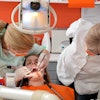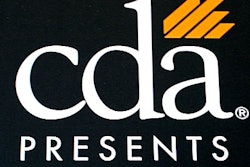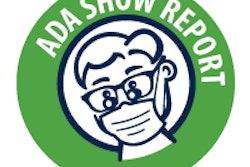
Medical emergencies occur in dental offices more often than we'd like to admit. Rather than waiting until it's too late, be sure you and your staff are ready -- today.
Do you have an emergency medical response plan in your office? Are you sure?
If not, how come? You probably have a retirement plan, a business plan, a financial plan, an insurance plan -- but no emergency medical response plan? Is it an "I'll get around to it sometime" thing? Is "calling 911" your emergency medical response plan?
What is your role in a medical emergency? Yes, you play a major part in the rescue of a patient! What is the role of your staff? Yes, they play a major role also!
How nice it is to have the entire team prepared, because your staff can offer advice and assist you during this chaotic event. A lot can happen during a life-threatening event, and if you're not prepared, you will panic. When you panic, you will forget. But when you and your staff are prepared, even though it is stressful, hopefully all of you will be thinking and acting on the same page.
Team training critical
Consider the case of two Chicago-area dentists who settled out of court for $8.5 million in the 2007 death of a 46-year-old school principal who died in their office during a root canal. Their licenses were suspended following the incident; one reason cited for their suspension was failure to have adequate training for dental emergencies.
If they -- and their staff -- had had proper training, this tragedy may have been avoided.
|
Be prepared! The biggest fear we all have is a patient dying in our office from a medical emergency. When it happens, the first question on everyone's mind is "why"? Knowing how to avoid these situations -- or handle them if they occur -- can mean the difference between life and death.
|
Remember: No one person can handle a medical emergency by themselves. One person has to stay with the patient and treat them. One person needs to call 911. One person needs to retrieve the AED and the Emergency Drug Kit. One person needs to be documenting fully everything that is happening. One person needs to assist the team leader who is treating the patient.
If you have an emergency medical response plan established before an emergency occurs, you will each know your role and duties when the time comes.
Accountability and liability
If you place crowns, if you do root canals, if you do extractions, if you place implants, if you inject local anesthesia … basically, if you practice dentistry, you had better have -- and be able to prove -- an emergency medical response plan. Why? Because a medical emergency can happen at any time during any type of dental procedure, and you had better know how to respond when it does.
Consider the case of Charles Gaal Jr. of Florida, who died in June 2007 after his dentist dropped dental instruments down his throat on two separate occasions. The dentist's license was briefly suspended in January 2008, the state fined him $17,000, and he is now facing a lawsuit from Gaal's family.
The moral of this story? You have to worry about what might happen! There is not a single practitioner who can predict with 100% accuracy that a medical emergency will never occur in their office. Disregard any comments you have heard about medical emergencies being "rare" or "infrequent." It is simply not true. Patients with multiple medical problems who are taking multiple medications seek dental treatment everyday.
More than a document
So let's face it: We will continue to experience medical emergencies in the dental office. And regardless of when they occur, your office must be ready and able to respond as well as react. The moment a patient experiences a medical problem, the dentist and staff will be held accountable for initiating a rescue. There can be no delay in the team's response, and your documentation of your actions must be meticulous.
Your emergency medical response plan must be an ongoing, continual process, not an occasional event. It can't be a one-page document that is placed on a wall that never gets seen or rehearsed.
So don't wait until it is too late and you are saying to yourself, "Why didn’t I develop a medical emergency program for my office and stick with it?" You will not learn about an emergency medical response plan in dental school. You must do this for yourself, your staff, and most important, your patients.



















